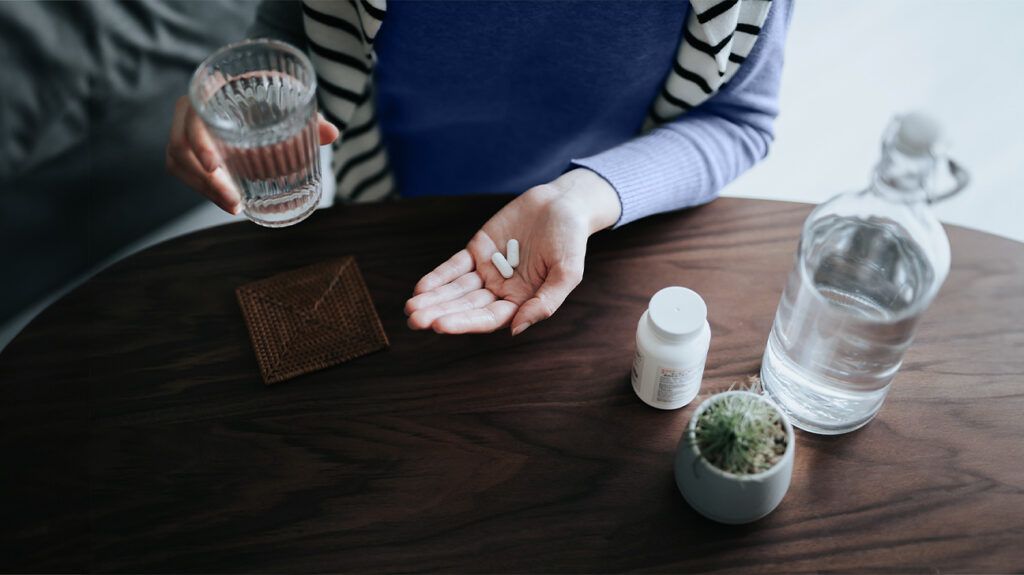Escherichia coli (E. coli) is a bacteria that commonly causes UTIs. When an infection occurs, doctors prescribe antibiotics to help treat it.
E. coli is a type of bacteria that lives in the gut without causing issues. However, it can sometimes enter the urinary system when it contacts the urethra (the tube where urine leaves the body). This can happen when someone wipes back to front.
Contact with E. coli can cause a UTI. Often, medical treatment is necessary to help prevent any complications.
This article discusses in further detail how to treat a UTI due to E. coli and how serious the infection can be.

Antibiotics are the first line of treatment when E. coli causes a UTI. They
Treatment can also involve medications that help with pain management. This includes phenazopyridine (Pyridium), which can help reduce bladder pain.
Recurrent UTIs
Doctors consider someone to have recurrent UTIs when a person experiences them
When infections are recurrent, a doctor may advise taking low dose antibiotics daily for a few months to help reduce the risk of relapse.
People with recurrent UTIs are at a greater risk of developing antibiotic resistance. This risk is likely because of the regular use of antibiotics, and E. coli may be less susceptible to their effects. The bacteria can survive and cause problems.
If a person experiences antibiotic resistance, the doctor may recommend undergoing a urine culture test. This will help them determine which antibiotic will work best.
Sometimes, a
Learn more about antibiotics for a UTI.
Infection with E. coli is the most common cause of UTIs.
Most E. coli strains are mild. However, some strains,
Symptoms of E. coli in urine
People with an E. coli UTI may develop symptoms
- pelvic pain
- burning sensation while urinating
- sense of bladder fullness
- an urgent and frequent need to urinate, even with an empty bladder
- dark-colored urine
- cloudy or foul-smelling urine
- bloody urine
If the infection has spread to the kidneys, people may experience the following:
- fever
- back or flank pain
- chills
- nausea and vomiting
There are
- Wiping front to back: Adopting this technique after a bowel movement can help reduce the risk of E. coli coming into contact with the genitals and urethra. It is also important for females to wipe front to back after urinating.
- Maintaining hygiene: A person should ensure the genital area is clean and dry. It is also important to wash the genitalia after sexual intercourse, especially after having anal sex. A person may wish to avoid tight-fitting clothing to prevent dampness and sweat from building up.
- Using a condom during anal sex: This helps reduce the risk of genitals coming into contact with bacteria in stool. However, this measure will only protect the person wearing the condom, as E. coli can remain on the condom and transfer to the female urethra. A person should always swap condoms when switching from anal to vaginal sex.
- Drinking plenty of fluids: This can help flush out bacteria and keep the urinary tract clean.
- Trying cranberry juice: Some experts note that cranberry juice
may help reduce UTI risk by preventing bacteria from adhering to the bladder. However, more research is necessary.
In some cases, intravaginal probiotics
Learn more about UTI prevention.
UTIs are extremely common, affecting
If a person experiences any symptoms of a UTI, they should seek medical advice. A doctor can determine the underlying cause and recommend the proper treatment.
If a person experiences recurrent UTIs and their symptoms do not improve with regular treatment or get worse, they should contact a doctor as soon as possible. Underlying irregularities may cause recurrent UTIs, and they require further investigation.
Without treatment, UTIs can cause severe complications and even lead to kidney damage. If a person develops any symptoms of kidney infection, they should contact a doctor immediately. This includes experiencing symptoms such as:
- fever
- back pain
- nausea and vomiting
E. coli UTIs can also cause urosepsis. This is a serious complication that
Here are some common questions about E. coli UTIs and their treatment:
How do you get rid of E. coli in the urinary tract?
Doctors usually prescribe antibiotics to help people get rid of E. coli in the urinary tract.
What is the best antibiotic for E. coli UTIs?
The antibiotics that doctors most commonly prescribe for E. coli UTIs
How long does it take to cure E. coli UTIs?
In most cases, an E. coli UTI typically resolves
Severe infections may sometimes take
UTIs are extremely common, and E. coli infections are the most frequent cause. If a person develops a UTI due to an infection with E. coli, they should speak to a doctor. While most cases are mild, certain E. coli strains can have a serious effect.
Doctors usually recommend antibiotics for treating E. coli UTIs. However, someone who experiences recurrent UTIs may require antibiotics for a longer duration.
Maintaining appropriate hygiene, drinking plenty of fluids, and avoiding contact between feces and genitalia can help prevent the risk of UTIs due to E. coli.
